Germany
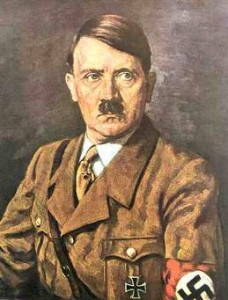 Anyone who knows much about Nazi Germany, knows that Adolf Hitler was insane. His hatred for the Jewish people was nothing less that insanity, because he had no valid reason to hate them. Nevertheless, the Holocaust did happen. Hitler did kill between five and six million Jews during his reign of terror. Many people thought that the Jews were the only target Hitler had too, but that wasn’t so. Hitler wanted to kill anyone who annoyed, inconvenienced, or even remotely bothered him. On this day, July 8, 1943, upon the German army’s invasion of Pskov, 180 miles from Leningrad, Russia, the chief of the German army general staff, General Franz Halder, records in his diary Hitler’s plans for Moscow and Leningrad: “To dispose fully of their population, which otherwise we shall have to feed during the winter.” Hitler planned to level both cities, or at least kill everyone in them, because he didn’t want to have to feed the prisoners during the long winter months! And for no other reason. Most armies at least set up prisoner of war camps, which while not terribly humane, gave some semblance of an attempt to be humane. I know that everyone complains about how the United States treats prisoners of war, but there really is no comparison, when you view the way Hitler and some other terrible dictators treat prisoners of war. Humane treatment is a pipe dream for prisoners of dictators.
Anyone who knows much about Nazi Germany, knows that Adolf Hitler was insane. His hatred for the Jewish people was nothing less that insanity, because he had no valid reason to hate them. Nevertheless, the Holocaust did happen. Hitler did kill between five and six million Jews during his reign of terror. Many people thought that the Jews were the only target Hitler had too, but that wasn’t so. Hitler wanted to kill anyone who annoyed, inconvenienced, or even remotely bothered him. On this day, July 8, 1943, upon the German army’s invasion of Pskov, 180 miles from Leningrad, Russia, the chief of the German army general staff, General Franz Halder, records in his diary Hitler’s plans for Moscow and Leningrad: “To dispose fully of their population, which otherwise we shall have to feed during the winter.” Hitler planned to level both cities, or at least kill everyone in them, because he didn’t want to have to feed the prisoners during the long winter months! And for no other reason. Most armies at least set up prisoner of war camps, which while not terribly humane, gave some semblance of an attempt to be humane. I know that everyone complains about how the United States treats prisoners of war, but there really is no comparison, when you view the way Hitler and some other terrible dictators treat prisoners of war. Humane treatment is a pipe dream for prisoners of dictators.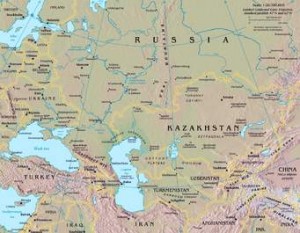
Hitler launched a massive invasion of the Soviet Union on June 22, with over 3 million men. He was highly successful, due in large part to a disorganized and unsuspecting Russian army. By July 8, they had captured 280,000 Soviet prisoners and almost 2,600 tanks were destroyed. The army was already a couple of hundred miles inside Soviet territory. Stalin was in a panic. He was so angry that he began executing generals who had failed to stop the invaders.
Halder, who was Hitler’s chief of staff, had been keeping a diary of the day-to-day decision making process. As time went on, Hitler became emboldened by his successes in Russia. Halder recorded that the “Fuhrer is firmly determined to level Moscow and Leningrad to the ground.” Halder also records the reality of Hitler’s underestimation of the Russian army’s numbers and the bitter fighting within Hitler’s own armies about strategy. Halder and some of the others wanted to make straight for the capital, Moscow. But Hitler wanted to meet up with Field Marshal Wilhelm Leeb’s army group, 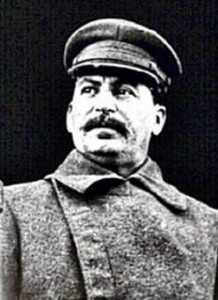 which was making its way toward Leningrad. And Hitler was, after all, in charge. But, the advantage Hitler had against the Soviets would not last very long. Winter was approaching and so was the advantage such conditions would give the Russians. The Russians were used to the severe Russian winters, and Hitler’s men were not. Like Napoleon before them, the Germans would soon find that they weren’t prepared for the Russian winter, and subsequent winters. And yet, Hitler thought he had learned from Napoleon. He ordered his troops to hold their ground. Which meant that during the Winter War, the German army was not able to pull back to more defensible positions. Consequently, the Russians were able to launch a series of counter-attacks during that first winter. These attacks cutoff some German forces, inflicted worse casualties than the Germans could inflict, but more importantly allowed the Russians to rebuild their army. The winter months proved to be just as detrimental for Hitler as they had for Napoleon. He was insane to even try such an attack.
which was making its way toward Leningrad. And Hitler was, after all, in charge. But, the advantage Hitler had against the Soviets would not last very long. Winter was approaching and so was the advantage such conditions would give the Russians. The Russians were used to the severe Russian winters, and Hitler’s men were not. Like Napoleon before them, the Germans would soon find that they weren’t prepared for the Russian winter, and subsequent winters. And yet, Hitler thought he had learned from Napoleon. He ordered his troops to hold their ground. Which meant that during the Winter War, the German army was not able to pull back to more defensible positions. Consequently, the Russians were able to launch a series of counter-attacks during that first winter. These attacks cutoff some German forces, inflicted worse casualties than the Germans could inflict, but more importantly allowed the Russians to rebuild their army. The winter months proved to be just as detrimental for Hitler as they had for Napoleon. He was insane to even try such an attack.
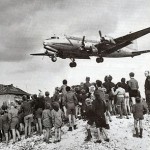 I think that every nation has opportunities to do what can be labeled as defining moments…situations when the nation dealt with an enemy or situation so well, that it can only be considered amazing. That was how the United States reacted to one of the most dramatic standoffs in the history of the Cold War. The Soviet Union decided to block off all road and rail traffic to and from West Berlin, Germany. The move was designed to basically starve the people into submission…or at least that was the plan. It was also a move that would be in defiance to all the other allies in Germany at the time. Unfortunately for the Soviet Union, the blockade turned out to be a horrible diplomatic move, but for the United States, it became a defining moment. The United States emerged from the confrontation with a renewed purpose and confidence, as well as a reputation for being a humanitarian nation.
I think that every nation has opportunities to do what can be labeled as defining moments…situations when the nation dealt with an enemy or situation so well, that it can only be considered amazing. That was how the United States reacted to one of the most dramatic standoffs in the history of the Cold War. The Soviet Union decided to block off all road and rail traffic to and from West Berlin, Germany. The move was designed to basically starve the people into submission…or at least that was the plan. It was also a move that would be in defiance to all the other allies in Germany at the time. Unfortunately for the Soviet Union, the blockade turned out to be a horrible diplomatic move, but for the United States, it became a defining moment. The United States emerged from the confrontation with a renewed purpose and confidence, as well as a reputation for being a humanitarian nation.
When World War II ended, Germany was divided into occupation zones. The United States, Great Britain, the Soviet Union, and eventually France were granted specific zones to occupy. Each nation was there to accept the surrender of Nazi forces and restore order. The Soviet Union occupied most of eastern Germany, and the other 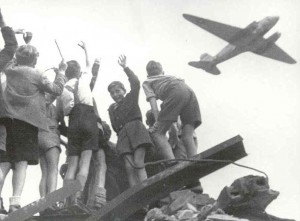 Allied nations occupied western Germany. The German capital of Berlin was divided into four sections as well. The differences between the United States and the Soviet Union were immediately evident. The Soviets were intent on thoroughly breaking the Germans…making them neutral and disarmed. Punishment was going to be at the top of the list. The United States saw things differently. They believed that the economic recovery of Western Europe depended of a strong, reunified Germany. The United States also felt that a rearmed Germany was going to be a stiff deterrent to further Soviet expansion into Western Europe. In May 1946, the Americans stopped reparations shipments from their zone to the Soviets. In December, the British and Americans combined their zones; the French joined some months later. The Soviets viewed these actions as a threat and issued more demands for more say in the economic future of Germany. On June 22, 1948, negotiations between the Soviets, Americans, and British broke down. On June 24, Soviet forces blocked the roads and railroad lines into West Berlin.
Allied nations occupied western Germany. The German capital of Berlin was divided into four sections as well. The differences between the United States and the Soviet Union were immediately evident. The Soviets were intent on thoroughly breaking the Germans…making them neutral and disarmed. Punishment was going to be at the top of the list. The United States saw things differently. They believed that the economic recovery of Western Europe depended of a strong, reunified Germany. The United States also felt that a rearmed Germany was going to be a stiff deterrent to further Soviet expansion into Western Europe. In May 1946, the Americans stopped reparations shipments from their zone to the Soviets. In December, the British and Americans combined their zones; the French joined some months later. The Soviets viewed these actions as a threat and issued more demands for more say in the economic future of Germany. On June 22, 1948, negotiations between the Soviets, Americans, and British broke down. On June 24, Soviet forces blocked the roads and railroad lines into West Berlin.
When the Soviets blocked the roads and railways, the Americans were furious. The question now became, what to do about it. Inside West Berlin there was panic. The people thought they were going to die. For a few tense 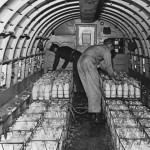 days, the world waited to see what the United States would do next. Then, just two days after the Soviets began the blockade, the United States reacted in a way that was so unexpected, and in the end, it would be a way that brought about that defining moment, and really set the stage for the humanitarian reputation the United States has today. A massive airlift of supplies was sent into West Berlin in what would become one of the greatest logistical efforts in history. For the Soviets, the escapade quickly became a diplomatic embarrassment. They looked like an international bully that was trying to starve men, women, and children into submission. The successful American airlift merely served to accentuate the technological superiority of the United States over the Soviet Union. On May 12, 1949, the Soviets officially ended the blockade.
days, the world waited to see what the United States would do next. Then, just two days after the Soviets began the blockade, the United States reacted in a way that was so unexpected, and in the end, it would be a way that brought about that defining moment, and really set the stage for the humanitarian reputation the United States has today. A massive airlift of supplies was sent into West Berlin in what would become one of the greatest logistical efforts in history. For the Soviets, the escapade quickly became a diplomatic embarrassment. They looked like an international bully that was trying to starve men, women, and children into submission. The successful American airlift merely served to accentuate the technological superiority of the United States over the Soviet Union. On May 12, 1949, the Soviets officially ended the blockade.

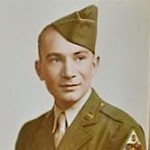 I was talking with my nephew, Steve Spethman the other day, when he mentioned that he knew very little about his grandfather, Fredrick Albert Spethman. Being a genealogy buff, I simply could not resist the challenge that presented. He had a picture of his grandfather, and knew that he had died in Oregon, and his grandmother’s first name, Joanne. He also knew his great grandfathers name, Patrick Spethman, as his own son, Xander Patrick was named after that grandfather. And he knew his great grandmother’s name, Meta Spethman. It was enough. I was able to find his grandparents’ marriage certificate and a little bit more information, including an index concerning his World War II service. The rest will come as it always does, as other people add what they know to what I have found out. Once this kind of search gets started, it always has a way of growing.
I was talking with my nephew, Steve Spethman the other day, when he mentioned that he knew very little about his grandfather, Fredrick Albert Spethman. Being a genealogy buff, I simply could not resist the challenge that presented. He had a picture of his grandfather, and knew that he had died in Oregon, and his grandmother’s first name, Joanne. He also knew his great grandfathers name, Patrick Spethman, as his own son, Xander Patrick was named after that grandfather. And he knew his great grandmother’s name, Meta Spethman. It was enough. I was able to find his grandparents’ marriage certificate and a little bit more information, including an index concerning his World War II service. The rest will come as it always does, as other people add what they know to what I have found out. Once this kind of search gets started, it always has a way of growing.
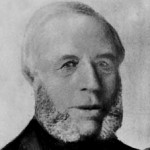 That information was exciting for me, as Steve is pretty special to me, but then I got a big surprise. Steve’s 3rd great grandfather, Johann Joachim Daniel Spethmann, who Americanized his name to John, was born in Oldenburg, Germany. To many people I don’t suppose that this information would be so interesting, but my husband, Bob Schulenberg’s family has a long history in Oldenburg. It dates back beyond the time of Steve’s grandfather’s birth, and the Schulenberg family is still there today. I’m not saying that the Spethmann family and the Schulenberg family are related, although it is entirely possible, but considering the fact that Oldenburg wasn’t that large a town back then, it is quite likely that they knew each other. Maybe, they were even friends.
That information was exciting for me, as Steve is pretty special to me, but then I got a big surprise. Steve’s 3rd great grandfather, Johann Joachim Daniel Spethmann, who Americanized his name to John, was born in Oldenburg, Germany. To many people I don’t suppose that this information would be so interesting, but my husband, Bob Schulenberg’s family has a long history in Oldenburg. It dates back beyond the time of Steve’s grandfather’s birth, and the Schulenberg family is still there today. I’m not saying that the Spethmann family and the Schulenberg family are related, although it is entirely possible, but considering the fact that Oldenburg wasn’t that large a town back then, it is quite likely that they knew each other. Maybe, they were even friends.
I realize that if you go back far enough, you will find that we are all related, as we all came from Adam and Eve, but as time has progressed, it is harder and harder to come up with the exact connections that exist between each of us. I have been able to find connections for Bob and me, on two sides of his family to one of mine. We are 10th cousins on one side and 12th cousins on another. That is such a strange thought to me, and now to find 
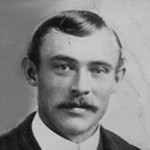 such a close connection with Steve’s family has added another interesting twist to the family history, and one that I am eager to explore. Time will tell if we are related in a way that can easily be figured…such as a marriage, and if it is the case, my guess is that I will stumble on that information, as I have in so many others, when I least expect to find such a connection. Nevertheless, finding this or any other information to add to the family history is always an exciting day, and in this case, it all started with the discovery of a common birthplace.
such a close connection with Steve’s family has added another interesting twist to the family history, and one that I am eager to explore. Time will tell if we are related in a way that can easily be figured…such as a marriage, and if it is the case, my guess is that I will stumble on that information, as I have in so many others, when I least expect to find such a connection. Nevertheless, finding this or any other information to add to the family history is always an exciting day, and in this case, it all started with the discovery of a common birthplace.
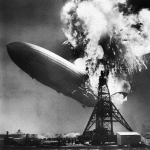 Through the years, or at least since the dawning of flight, man has tried to build flying machines that are more and more creative. Some of these have had amazing runs, like the B-17 Bomber, which was a World War II era plane, that still flies today. Others, like the Hindenburg, went down in a ball of flames. I don’t think it’s usually easy to predict which ones will succeed and which ones won’t. I seriously doubt that people would have predicted that the Concord would ever have the problems it had, or that the Goodyear Blimp would prove successful, where the Hindenburg failed. Sometimes, it’s all about finding yourself with just the right set of components, or making just one slight mistake…and sometimes, the mistake is more obvious.
Through the years, or at least since the dawning of flight, man has tried to build flying machines that are more and more creative. Some of these have had amazing runs, like the B-17 Bomber, which was a World War II era plane, that still flies today. Others, like the Hindenburg, went down in a ball of flames. I don’t think it’s usually easy to predict which ones will succeed and which ones won’t. I seriously doubt that people would have predicted that the Concord would ever have the problems it had, or that the Goodyear Blimp would prove successful, where the Hindenburg failed. Sometimes, it’s all about finding yourself with just the right set of components, or making just one slight mistake…and sometimes, the mistake is more obvious.
The Hindenburg disaster, which occurred on this day, May 6, 1937, was probably the worst slight mistake in history. The Hindenburg was Germany’s version of the most luxurious way to fly in existence at that time. It was over 800 feet long and with its state of the art Mercedes Benz engine, it flew at 85 miles per hour, and had a range of 8,000 miles. The Hindenburg carried 97 passengers, and made ten successful ocean crossings the year before the disaster. It was Germany’s Nazi government’s symbol of national pride, but it held a secret mistake that, on May 6, 1937, exploded into one of Germany’s biggest failures.
The Hindenburg was filled with seven million cubic feet of Hydrogen. The Germans used Hydrogen because of its maneuverability, even though Helium would have been much safer. The Hindenburg was supposed to arrive in New Jersey at 5:00am on that fateful day, but bad weather delayed its arrival until the later afternoon. Even then, the weather was not ideal. Rain further delayed the docking at Lakehurst. When they were finally cleared to dock, Captain Max Pruss brought the ship in too fast and had to order a reverse engine thrust. At 7:20pm a gas leak was noticed. Within minutes, the tail blew up, sending flames hundreds of feet in the air and as far down as the ground below.
The chain reaction that followed caused the entire vessel to burst into flames. There were nearly 1,000 spectators awaiting the arival, who could feel the heat of the fire from a mile away. Those on the Hindenburg 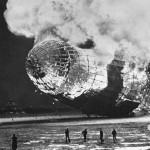 tried to jump. Some tried to jump to the docking cables, and when they fell, they were killed or critically injured. Others tried to jump as they got closer to the ground. Many were critically burned. In all 36 people lost their lives, while 56 managed to survive. Probably the main reason this crash has stayed in the minds of people over the years is that there were so many cameras to document the event. The photographs have become well known. Announcer Herbert Morrison, on WLS radio gave an unforgettably harrowing live account of the disaster, “Oh, oh, oh. It’s burst into flames. Get out of the way, please . . . this is terrible . . . it’s burning, bursting into flames, and is falling . . . Oh! This is one of the worst . . . it’s a terrific sight . . .oh, the humanity.” This truly was a disaster of monumental proportion, and it will never be forgotten.
tried to jump. Some tried to jump to the docking cables, and when they fell, they were killed or critically injured. Others tried to jump as they got closer to the ground. Many were critically burned. In all 36 people lost their lives, while 56 managed to survive. Probably the main reason this crash has stayed in the minds of people over the years is that there were so many cameras to document the event. The photographs have become well known. Announcer Herbert Morrison, on WLS radio gave an unforgettably harrowing live account of the disaster, “Oh, oh, oh. It’s burst into flames. Get out of the way, please . . . this is terrible . . . it’s burning, bursting into flames, and is falling . . . Oh! This is one of the worst . . . it’s a terrific sight . . .oh, the humanity.” This truly was a disaster of monumental proportion, and it will never be forgotten.
 My niece, Christina Masterson recently moved to Germany to live with her mother for a while. It is a wonderful opportunity for her to see the world, and still spend time with family. During the time she has been living in Germany, her family has traveled to France, as well as visiting many of the castles in Germany. I would love to have the opportunity to visit some of the places she is visiting, so I hope she knows what a blessing this is for her.
My niece, Christina Masterson recently moved to Germany to live with her mother for a while. It is a wonderful opportunity for her to see the world, and still spend time with family. During the time she has been living in Germany, her family has traveled to France, as well as visiting many of the castles in Germany. I would love to have the opportunity to visit some of the places she is visiting, so I hope she knows what a blessing this is for her.
Christina is just four days older than my grandson, Christopher Petersen, and five days older than my granddaughter, Shai Royce. The three mothers shared their entire  pregnancies…first for all three. It was a wild time. In fact, Christina’s mom, Angie almost had to leave her baby shower early to go have a baby. The funny thing was that the baby who was born last, my granddaughter, Shai was due first, and the baby that was born first, Christina was due last. Nevertheless, babies have their own timetables, and they are born when their time is right.
pregnancies…first for all three. It was a wild time. In fact, Christina’s mom, Angie almost had to leave her baby shower early to go have a baby. The funny thing was that the baby who was born last, my granddaughter, Shai was due first, and the baby that was born first, Christina was due last. Nevertheless, babies have their own timetables, and they are born when their time is right.
The three kids shared so much, but it was Christina and Shai who would become close friends. I’m sure it was because they were both girls and so they shared similar interests. For years, they were inseparable. I suppose that is what makes Christina’s move to Germany seem so strange. It’s not strange in that Christina moved, but rather that the girls wouldn’t be together anywhere near as much. That is odd, but you just don’t know what turns life will take you on. Not everyone knows what their life’s work  will be, and so trying out new things is important. I’m think that time will return Christina to the United States to stay, but you simply never know.
will be, and so trying out new things is important. I’m think that time will return Christina to the United States to stay, but you simply never know.
It is so hard for me to believe that Christina is nineteen years old today. I remember so vividly the days that her mom was pregnant with her, and her arrival. I remember so well her childhood, and all the time she and my granddaughter, Shai spent together, being crazy kids, and sometimes even driving all of us crazy with their antics. Now…suddenly, those days are over and before us stands a beautiful young lady. She is making new friends, and she has become a world traveler. I can’t believe how much has changed. She has so much potential and so much life ahead of her, and it will be exciting to see what her future brings. I know that is will be wonderful in every way. Today is Christina’s 19th birthday. Happy birthday Christina!! We miss you, because you are so far away. Have a great day!! We love you!!
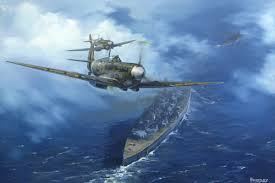 In any war, each side has just one goal in mind…winning. Of course, this is not just a video game or war games, but it is really a life and death challenge. In retrospect, I find it interesting to see some of the strategies the different sides use. While I cannot agree with anything the Germans did under Hitler’s rule, because Hitler was unbelievably ruthless, hateful, and cruel, there were some strategies that either he, his admirals, or his soldiers executed that were quite spectacular, though surprising in nature, because the Germans didn’t usually coordinate their efforts this well. I would never have wanted the Germans to win in World War II, because of their horrible treatment and murders of the Jewish people, but they did have a way of fighting that has captured my interest…at least on this day.
In any war, each side has just one goal in mind…winning. Of course, this is not just a video game or war games, but it is really a life and death challenge. In retrospect, I find it interesting to see some of the strategies the different sides use. While I cannot agree with anything the Germans did under Hitler’s rule, because Hitler was unbelievably ruthless, hateful, and cruel, there were some strategies that either he, his admirals, or his soldiers executed that were quite spectacular, though surprising in nature, because the Germans didn’t usually coordinate their efforts this well. I would never have wanted the Germans to win in World War II, because of their horrible treatment and murders of the Jewish people, but they did have a way of fighting that has captured my interest…at least on this day.
The Germans had controlled and occupied France since June of 1940. Their ships docked in French ports were drawing fire from the British. It became clear that the ships needed to escape. The German battleships Gneisenau and Scharnhorst had been anchored at the port of Brest since March of 1941, and the heavy cruiser, Prinz Eugen had been there since May of 1941. They were periodically subjected to bombing raids and damage at the hands of the British. Now it was time to turn a bad situation into a successful failure, as it were. The Germans knew they were not going to hold onto France here, so now they needed to steal away in the night without getting caught.
It was decided that they would make a mad dash up the English Channel to the safety of German waters. The 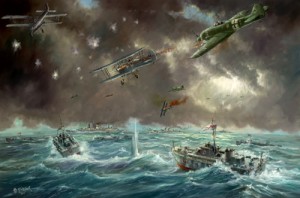 key here was to make the Channel Dash right under the watchful eye of the British Royal Navy without their notice. It was quite risky. Despite the watchfulness of the British submarines and aircraft, the German Vice Admiral, Otto Ciliax launched Operation Cerberus to lead the ships out of the French port, and to the safety of the German ports.
key here was to make the Channel Dash right under the watchful eye of the British Royal Navy without their notice. It was quite risky. Despite the watchfulness of the British submarines and aircraft, the German Vice Admiral, Otto Ciliax launched Operation Cerberus to lead the ships out of the French port, and to the safety of the German ports.
On the evening of February 11, 1942, they set their plan in motion. Accompanied by six German destroyers and twenty one torpedo boats for protection, they moved north late that evening. When daylight hit, they were joined by German planes to provide air cover as well. The air cover was led by ace pilot, Adolf Galland. He was joined by 250 other fighters in a coordinated joint effort of the German Navy and the Luftwaffe…an unusually well coordinated joint effort. The British Royal Navy scrambled to coordinate its own attack, but the late start would prove to be the undoing of the attack, because they did not realize that the escape was in progress until the afternoon of February 12th. All three of the German warships made it to a German port on February 13th, although the Gneisenau and had incurred damaged by British mines along the route. In addition to the embarrassment of the well planned escape that was carried out by the Germans, the British lost 40 aircraft and six Navy Swordfish during their confrontation. The Germans, on the other had, only lost one torpedo boat and 17 aircraft.
Nevertheless, the British would exact a revenge of sorts, when British warships sunk the Scharnhorst in December of 1944, as it attempted to attack a Russian convoy. The Gneisenau was destroyed during a bombing raid, while it was still being repaired from the prior damage, and the Prinz Eugen survived the war, but 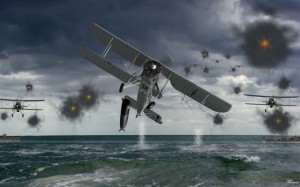 was taken over by the US Navy at the end of the war. It isn’t that I want to commend the Germans for their sneaky escape, because I don’t. They simply lived to fight…and ultimately lose, another day. It was, however, a good strategy, and I guess that even crazy dictators like Hitler, and the men he trained, could come up with an occasional good escape plan. Nevertheless, evil must not be allowed to continue, and the Germans had to be shut down, so the British, and all the other nations who stand for what is good, had to continue to fight, until Germany and its allies had no choice but to surrender. Still, February 11, 1942, the day of The Channel Dash would stand out as one of the best fights put up by the Germans, or at least, the best escape plan.
was taken over by the US Navy at the end of the war. It isn’t that I want to commend the Germans for their sneaky escape, because I don’t. They simply lived to fight…and ultimately lose, another day. It was, however, a good strategy, and I guess that even crazy dictators like Hitler, and the men he trained, could come up with an occasional good escape plan. Nevertheless, evil must not be allowed to continue, and the Germans had to be shut down, so the British, and all the other nations who stand for what is good, had to continue to fight, until Germany and its allies had no choice but to surrender. Still, February 11, 1942, the day of The Channel Dash would stand out as one of the best fights put up by the Germans, or at least, the best escape plan.
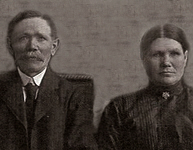 My great grandparents, Carl and Albertine Schumacher immigrated to the United States from Germany, before they even knew each other. When they arrived, they, like most immigrants, could not speak English very well. It made communication difficult in those early years. Eventually, they learned enough English to get by, but the family still spoke German in the home. German continued to be the home language for many years. In fact, it would take a teacher at the school where their two oldest children, Anna and Albert attended, who made fun of their language, to change their home life forever. When the children came home upset about the thoughtlessness of the teacher, my great grandmother, said, “That’s it!! From now on, this family will speak only English in this house!” She did it to protect her children from further ridicule, but looking back on that time now, I think it is a bit sad that the German language that had been a part of their heritage for generation and generations, was now lost forever. I know that my great grandparents probably always remembered the language, but for their children much of it was lost, and for their children, it was completely lost.
My great grandparents, Carl and Albertine Schumacher immigrated to the United States from Germany, before they even knew each other. When they arrived, they, like most immigrants, could not speak English very well. It made communication difficult in those early years. Eventually, they learned enough English to get by, but the family still spoke German in the home. German continued to be the home language for many years. In fact, it would take a teacher at the school where their two oldest children, Anna and Albert attended, who made fun of their language, to change their home life forever. When the children came home upset about the thoughtlessness of the teacher, my great grandmother, said, “That’s it!! From now on, this family will speak only English in this house!” She did it to protect her children from further ridicule, but looking back on that time now, I think it is a bit sad that the German language that had been a part of their heritage for generation and generations, was now lost forever. I know that my great grandparents probably always remembered the language, but for their children much of it was lost, and for their children, it was completely lost.
When I was in school, I fell in love with the German language, and took it in school for four years. It was so interesting to me to speak the German language, but the biggest problem was that I had no one to speak it with at home. I can see how speaking one language in the home and another at school could have become a problem for my grandmother and great uncle. It would be hard for them to learn English when German was spoken in the home. I know that the opposite made it very hard for me. The only time I got to speak German was the hour I had class each day. It would be especially confusing for younger children. Nevertheless, I think it could be done, and would have been beneficial for all of the children.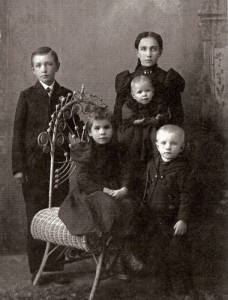
Over the years, I have been an advocate for English being our countries official language, and I still feel that way, but I also think it is great when people can speak more than one language. In my opinion, it is rude to speak another language in the company of people who cannot speak it back, because they invariably get the feeling that you are talking about them, and perhaps you are. Even if you aren’t, they will always believe you were. That is why I think it is important to consider those around you when choosing to speak a language that is not the common one to the area you are in. Of course, when you are not in a conversation with those around you, like in a grocery store, it’s a different thing. I think people should pass their heritage, culture, and language down to children and grandchildren, because it will never be something they regret giving them, but it is also important to embrace their new home when they immigrate, because that is where you will live, work, and socialize from then on.
 I love that I have connected with so many family members over the past few years. It seems like each connection brings another connection, and then it keeps blossoming into more and more connections. Yesterday, I got an email from my cousin, Tracey Schumacher Inglimo, telling me of some information she came across in FamilySearch.Org. Some of it I already had, but there was quite a bit of it that I didn’t. It was like opening an early Christmas present. It was given to me for no reason other than to further the family tree for all of us. I seriously can’t tell you how big a blessing Tracey has become, and she continues to grow more and more important to my life every day. It was the connection with her that started all the open doors in the Schumacher family in the first place. From there, the Schumacher side of the family has grown to the point where I’m not sure just how many we know…and that is awesome!!
I love that I have connected with so many family members over the past few years. It seems like each connection brings another connection, and then it keeps blossoming into more and more connections. Yesterday, I got an email from my cousin, Tracey Schumacher Inglimo, telling me of some information she came across in FamilySearch.Org. Some of it I already had, but there was quite a bit of it that I didn’t. It was like opening an early Christmas present. It was given to me for no reason other than to further the family tree for all of us. I seriously can’t tell you how big a blessing Tracey has become, and she continues to grow more and more important to my life every day. It was the connection with her that started all the open doors in the Schumacher family in the first place. From there, the Schumacher side of the family has grown to the point where I’m not sure just how many we know…and that is awesome!!
As I said, some of the information was information that I already had, but some of it was new to me. One of the things I found most exciting is that Tracey had found, what I now believe to be the long lost picture of Christian Schumacher, who is my great great uncle, and the brother of my great grandfather, Carl Schumacher. According to my great aunt, Bertha Schumacher Hallgren, “Christian was a soldier (he joined very young, perhaps 20), straight and tall when he stood in his uniform, the photo of which Elsa and I used to love to look at when we were small. He served in the first World War, having stayed in the reserves  throughout the years, and fighting men became so few in the closing years of the conflict that Germany had to call up all the reserves, regardless of age. When the Russians entered Poland, he was captured and never heard from again. He had married a Polish girl and lived just inside the border of the two countries, operating a wholesale grocery business. They never had children and she did not continue writing after this tragedy.”
throughout the years, and fighting men became so few in the closing years of the conflict that Germany had to call up all the reserves, regardless of age. When the Russians entered Poland, he was captured and never heard from again. He had married a Polish girl and lived just inside the border of the two countries, operating a wholesale grocery business. They never had children and she did not continue writing after this tragedy.”
It is my hope that the picture Tracey found online is the same one Aunt Bertha mentioned in her story. It had seemed all but lost, and to find it among the things Tracey had found excited me beyond measure, as I know it will for all the other family members who have been hoping to see it. It is exactly what was described to me, and I know that there are others in the family who have seen it, so I hope they will be able to confirm that is the one they had seen.
I have found, as I have taken this journey of discovery to find other family members and more information on our history, that two heads…or ten, are better than one. They are far better, in fact. We all tend to look different places, and look for different information, and yet before you know it, the information found by one turns out to be the information that someone else was searching for. I guess I would have to say that my main reason for connecting with family is the family…for sure, but finding out so much more about the family is definitely a plus. So, today I want to thank Tracey for giving me and the rest of the family such an amazing gift. We all love you very much!!
 Recently, my interest turned to the ancestry of the Schulenberg side of my family, when I was contacted by a more famous member of the family, who I will not name at this point, as I have not asked his permission to do so, and so I will respect his privacy. He wondered if we might be related, and I told him that I expected that we probably are. Since that time, I have been looking back on that side of the family. I knew that our side of the Schulenberg family came to America aboard the SS Moltke in 1895, when Max Heinrich Johann Carl Schulenberg arrived on that ship at the tender age of 17 years, without an adult to accompany him…a bold move for a young man. He arrived in New York City, like so many other immigrants. Before too long he had made his way to Blair,Nebraska, where he met and married Julia Doll on December 16, 1902. The couple would have ten children, the oldest of which was Andrew, my husband, Bob’s grandfather. The family would eventually settle in Forsyth, Montana, where there are still family members living to this day.
Recently, my interest turned to the ancestry of the Schulenberg side of my family, when I was contacted by a more famous member of the family, who I will not name at this point, as I have not asked his permission to do so, and so I will respect his privacy. He wondered if we might be related, and I told him that I expected that we probably are. Since that time, I have been looking back on that side of the family. I knew that our side of the Schulenberg family came to America aboard the SS Moltke in 1895, when Max Heinrich Johann Carl Schulenberg arrived on that ship at the tender age of 17 years, without an adult to accompany him…a bold move for a young man. He arrived in New York City, like so many other immigrants. Before too long he had made his way to Blair,Nebraska, where he met and married Julia Doll on December 16, 1902. The couple would have ten children, the oldest of which was Andrew, my husband, Bob’s grandfather. The family would eventually settle in Forsyth, Montana, where there are still family members living to this day.
But what of the German half of the Schulenberg family. They had a longstanding heritage in Oldenburg, Germany, where the family owned a farm since 1705, when the first known Schulenberg owner,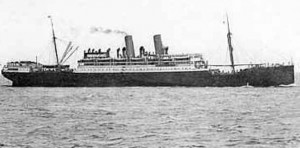 Johann Schulenberg shows up in records as the owner. The farm was rather large and still stands to this day. It has been well maintained, and is in fact, more beautiful today than it was when Johann owned it. I’m sure that has to do with all the modern equipment and products we have today to enhance the natural beauty of a home and its grounds. Nevertheless, the farm was a productive place in 1705 too.
Johann Schulenberg shows up in records as the owner. The farm was rather large and still stands to this day. It has been well maintained, and is in fact, more beautiful today than it was when Johann owned it. I’m sure that has to do with all the modern equipment and products we have today to enhance the natural beauty of a home and its grounds. Nevertheless, the farm was a productive place in 1705 too.
The furthest record of the family line that I have found to date is Vitter Schulenberg, who actually hailed from Schulenberg, Germany, where I expect the family originated, because as most of us know, before last names existed, people were known by the town they came from, such as Jesus of Nazareth. The Schulenberg family had been known in prior years as von der Schulenberg, which translates from Schulenberg, meaning the town of Schulenberg, Germany which is located in the district of Goslar in Lower Saxony, Germany, I don’t know if those people whose last name is spelled Schulenburg came from the same family or not, but I would expect that it is quite likely, because when people came to America, they were told to  Americanize their name, and there was no regulation as to how to do that, so some went one way and others went another way.
Americanize their name, and there was no regulation as to how to do that, so some went one way and others went another way.
I also found out that there was an older village of Schulenberg, which only appears in the fall, when the lake is at its lowest point. The lake (der Okertalsperre) or reservoir which was constructed in 1953, resulting in the flooding of the old village. That fascinated me. I found this picture of the ruins on Google Earth (taken by Harz Geist), and either there is not much left of the old village, or it was very small, which almost makes me wonder if it was originally a farm named Schulenberg, that grew into a village…but that is the subject of another story, for another day.
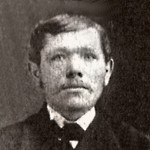 On this, the 130th anniversary of the arrival of my great grandfather, Carl Ludwig Theodor Schumacher in the United States, I have been thinking about how it must have felt for him. He had made the most difficult decision to leave his homeland at the very young age of 25, and board the SS Gellert, leaving from Hamburg, Germany on April 6, 1884 to start a new life, far away from his parents and family in the United States of America. He had been reading letters from his uncle and cousins about how wonderful America was, and in particular, how wonderful Minnesota was, since he was 18, and he had made up his mind to go. He would work seven long years taking care of the horses of a wealthy landowner to earn the $50.00 needed to pay his fare. He knew that travel by ship across the Atlantic could be dangerous, and he might be very homesick for his family, but he was determined to go. He knew, also that it would take years of hard work to build the American Dream that he had in mind for his life. My great grandfather would be successful in building his American Dream, but today my thoughts go not to thinking of his dreams, but rather to how he must have felt as he made such a life change.
On this, the 130th anniversary of the arrival of my great grandfather, Carl Ludwig Theodor Schumacher in the United States, I have been thinking about how it must have felt for him. He had made the most difficult decision to leave his homeland at the very young age of 25, and board the SS Gellert, leaving from Hamburg, Germany on April 6, 1884 to start a new life, far away from his parents and family in the United States of America. He had been reading letters from his uncle and cousins about how wonderful America was, and in particular, how wonderful Minnesota was, since he was 18, and he had made up his mind to go. He would work seven long years taking care of the horses of a wealthy landowner to earn the $50.00 needed to pay his fare. He knew that travel by ship across the Atlantic could be dangerous, and he might be very homesick for his family, but he was determined to go. He knew, also that it would take years of hard work to build the American Dream that he had in mind for his life. My great grandfather would be successful in building his American Dream, but today my thoughts go not to thinking of his dreams, but rather to how he must have felt as he made such a life change.
A young man of 25 years is really not so grown up that a move half a world away doesn’t feel scary. That kind of a move would be a daunting experience for anyone, no matter how 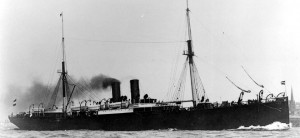 old they are. And then to arrive at a place like Ellis Island, or in my grandfather’s case, Castle Garden, since the Ellis Island facility wasn’t built until 1892…not really knowing what you would be put through before you would be allowed to enter the United States. Many people were required to Americanize their names, so it would be easier for them to fit in…forever altering their identity. That was the case for my great grandfather, when his name was changed from Schuhmacher to Schumacher. Still, the immigrants felt like this was a small sacrifice to make for the gain of the American Dream, and in fact, many immigrants felt like that name change was like a rite of passage into this great country.
old they are. And then to arrive at a place like Ellis Island, or in my grandfather’s case, Castle Garden, since the Ellis Island facility wasn’t built until 1892…not really knowing what you would be put through before you would be allowed to enter the United States. Many people were required to Americanize their names, so it would be easier for them to fit in…forever altering their identity. That was the case for my great grandfather, when his name was changed from Schuhmacher to Schumacher. Still, the immigrants felt like this was a small sacrifice to make for the gain of the American Dream, and in fact, many immigrants felt like that name change was like a rite of passage into this great country.
Nevertheless, I can’t help but feel that my grandfather must have felt some level of sadness at the change of his name, even though he would use it again when he was married. Still, the census records, and other records show it as Schumacher, thus muddying the waters when it comes to genealogy records. I don’t suppose that was the 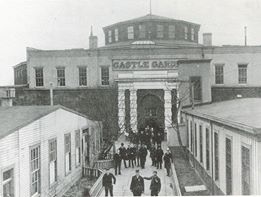 thing my great grandfather was thinking about as he waited for his turn at Castle Garden on April 21, 1884, but as my mind looks back in time to that day that would end up being so very important to my life, it is something that definitely occurs to me. My great grandfather had been through so much to come to this new land filled with opportunity, and I’m quite certain that the overwhelming changes must have made him quite weary, but as he arrived in Minnesota and began the work of building that dream, I suppose that all of the uncertainty of the journey to get where he was, became simply a distant memory. He was home…the home of his dreams.
thing my great grandfather was thinking about as he waited for his turn at Castle Garden on April 21, 1884, but as my mind looks back in time to that day that would end up being so very important to my life, it is something that definitely occurs to me. My great grandfather had been through so much to come to this new land filled with opportunity, and I’m quite certain that the overwhelming changes must have made him quite weary, but as he arrived in Minnesota and began the work of building that dream, I suppose that all of the uncertainty of the journey to get where he was, became simply a distant memory. He was home…the home of his dreams.

